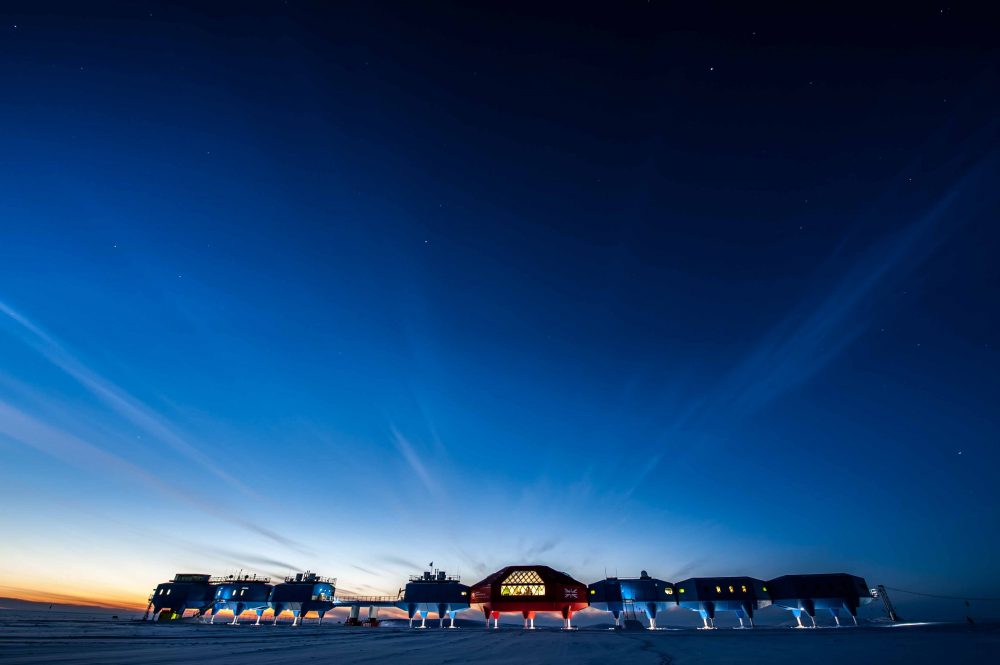Many thanks to SWLing Post contributor, David (G4EDR), who writes:
I know that you and many of the readers of the SWLing Post like to tune into the annual BBC WS Antarctic Mid Winter broadcast. I requested some information from the BDXC (of which I am a member) about this year’s broadcast and got the following reply:
The broadcast will be on Monday 21 June from 2130-2200 utc. There are usually three extra SW frequencies beamed to Antarctica, these have not yet been confirmed but last year’s frequencies (which may be the same this year) were 5790 and 7360 via Woofferton and 9580 via Ascension.
This year its also being carried on most of the World Service English streams from 2132-2200, however the only shortwave outlets at this time are to Africa on 11810 and 12095 via Ascension. For those of us in the UK it should also be on the BBCWS DAB stream at the same time.
Its slightly shorter via the regular WS streams so to hear the full broadcast we should listen to the special Antarctica frequencies.
Thank you for sharing this and for the reminder, David!
I look forward to the Midwinter broadcast every year! It falls on my birthday and almost without fail also happens when I’m travelling. This year will be no exception.
I will still welcome photos and recordings as in years past as I love sharing these! I might ask, however, that readers and listeners simply leave their videos, audio, and notes in the comments section of the relevant post. Maybe I can even offer a little prize to a random listener–that would be fun!
Stay tuned! Please comment or contact me should you learn of the frequencies the BBC will use this year!


As usual, there was a test of this year’s possible frequencies yesterday (14 June) from 21:30 to 21:45 UTC. They were:
6035 kHz from Dhabbaya
6170 kHz from Ascension
7305 kHz from Woofferton
9505 kHz from Woofferton
As has been the case in past years, three of these frequencies will be chosen for the actual broadcast. Here in NB yesterday, good signals were received on 6170, 7305, and 9505 kHz. 6035 kHz was not heard
Hi – I’m (proudly) the Executive Producer of the Antarctic Midwinter Broadcast. It’s made by Boffin Media for the BBC….I’m about to deliver this year’s edition.
In terms of the broadcast itself, following the test on Monday, the BBC’s decided to transmit on all four of the frequencies above this year. Because it’s a unique broadcast, the SW version is 30 minutes long whereas the global version is 26′ 29″ (to fit the standard World Service half hour, following the news bulletin). The SW version also has a different introduction as it’s aimed just at our audience of 35 in Antarctica.
Thank you, Richard! I’ve turned your comment into a post so it’ll receive more visibility:
https://swling.com/blog/2021/06/four-frequencies-will-be-used-for-the-2021-bbc-midwinter-broadcast/
The Midwinter Broadcast is a tradition here at the SWLing Post, too. Each year, we collect listener audio clips and notes from around the world. Here’s a sampling: https://swling.com/blog/2019/07/listening-across-the-globe-the-2019-bbc-antarctic-midwinter-broadcast/
The 5 and 7mhz channels rule me out, those are non existent here during the day in Alaska. 9mhz? Not impossible, but very Highly unlikely.
However if it will also end up on 12095 via Ascension at 2132UTC (132pm AK local time), that is possible for me.. ive heard 12095 ascension with varying degrees of intelligibility here
Paul
QTH: Just East Of Gods Creation Nowhere, Alaska